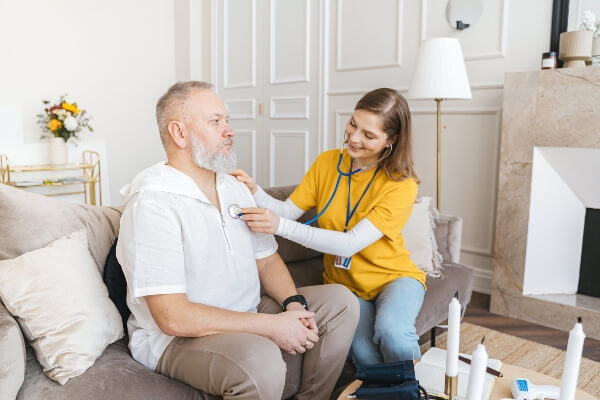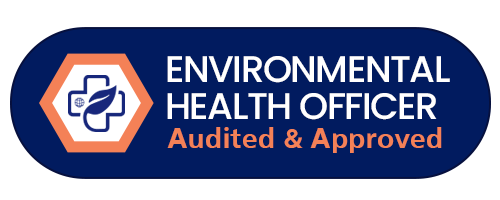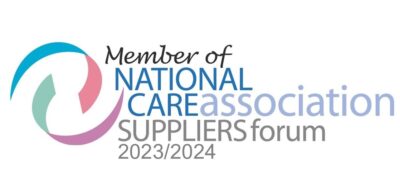What is a Care Assistant’s Role in Safeguarding, and How Can You Help Them?
Pexels Licence – Antoni Shkraba
Care assistants are crucial individuals that cater to vulnerable people’s needs and protect them. Their work is often unseen, but it massively impacts those in their care. They can truly change lives.
You may have heard people referred to as care assistants or carers but might not know what that means. This helpful guide explains a care assistant’s role in safeguarding and how you can help them.
What is a Care Assistant and What Do They Do?
A care assistant, also known as a caregiver or carer, is an individual who supports vulnerable people throughout their daily lives. Their key responsibility is to perform or assist with tasks that a vulnerable person may be unable to complete.
They also have a safeguarding responsibility towards the vulnerable person, ensuring their safety and protecting their liberties. They must implement measures to prevent abuse and neglect, be aware of the potential risks to the person in care and identify hazards. Then, they must also record and report safeguarding issues to other care services or the police if they believe a crime has been committed or there is an immediate risk.
Care Assistants Rights Under The Care Act 2014
The Care Act 2014 sets out the standards surrounding safeguarding. Section 10 defines a carer as any adult that supports or intends to support the care needs of another adult. As outlined in the same section of legislation (or the Children and Families Act 2014 for young carers and parents of disabled children) this carer is then entitled to a carer’s assessment that evaluates:
- Their ability to care for another person
- Their willingness to care for another person
- The impact of their care on the vulnerable person’s rights and well-being
- The objectives the carer wants to achieve in their own lives
- Whether they require provisions to achieve those outcomes.
The assessing body should also consider whether the carer works or intends to do so and if they are currently undertaking or wanting to undertake education, training or recreation. It also states that the local authority must assess young carers before they turn 18 to ensure they can effectively plan their future.
As well as assessing the carer, the vulnerable individual’s needs must also be evaluated, as legislated by Section 9 of the Care Act 2014. The assessment should involve the adult concerned, their carers and any individuals the adult wants to be involved with, and it should cover:
- The level of care and support they require
- The impact of this support on their rights and well-being
- The objectives they want to achieve in their daily lives
- Whether they require additional provisions to achieve those objectives
These assessments are the local authority’s responsibility, and under Section 20, the council must meet the vulnerable person’s needs, dictated by the national eligibility threshold.
How You Can Work Effectively with a Care Assistant
One of the six principles of safeguarding is ‘partnership,’ meaning that the best way to administer care and protect people is by collaborating to use all the available services. Hence, there are methods of working with a carer to ensure that the vulnerable individual has the best possible support.
Communication
Transparent communication between every caring partner is vital to ensure plans are followed. With due diligence, you can prevent mistakes and provide extra clarity to vulnerable people and their families.
Involving ‘Hidden Carers’
Inevitably, there are individuals in a person’s life who may be able to help but are not identified as carers. These people are known as ‘hidden carers’, and involving them will help you deliver complete protection.
Support and Recognition
Showing appreciation for carers and supporting them wherever possible helps those in their care. It makes the carers feel even prouder about their work, even if times are tough. Learn about the aid available for carers in your area and offer it to them.
Situations Requiring a Safeguarding Response
A carer’s primary responsibility is identifying situations that require a safeguarding response. Picking up the telltale signs is vital to implementing effective solutions and ensuring that all parties are safe. The carer should trigger a safeguarding response if they:
- Witness an incident of neglect or abuse
- Unintentionally or intentionally harm a vulnerable person
- Experience harm themselves
If any of these scenarios occur, quickly alerting others will prevent escalation. A carer may reach out to other caregivers or local services for support.
Can a Vulnerable Person Pose a Risk to their Carer?
There are rare occasions when the actions of a vulnerable person can not only hinder the care they receive but place undue strain on their carers. If these circumstances go unidentified, the carers themselves may suffer from abuse or neglect. A supported person may harm if they:
- Have needs that exceed the carer’s ability
- Do not consider others
- Treat people will a lack of respect
- Are aggressive or offensive
- Have a history of substance abuse or abusive behaviour
- Refuse to be left on their own
- Reject further assistance
- Control their carer’s home, property or financial affairs
- Are unable to understand their actions and how they impact others
In these situations, your support network is vital. Options allow you to care at all times, remove the pressure on one carer and vary the assistance provided. As a vulnerable person’s behaviour or needs change, their care should change too. Therefore choice means you can match the support to the current requirements.
When Can a Care Assistant be at Risk of Abuse?
Unfortunately, there are situations where carers can open themselves up to harm, abuse and neglect. It can hinder their caregiving ability and make their daily lives incredibly difficult. Here are the circumstances to look out for:
- The carer has needs that are not being catered to
- The carer themselves is vulnerable
- The carer is not receiving physical, mental or emotional support from their friends and family
- The carer feels emotionally unstable, lonely or stigmatised
- The carer is being abused by the person in their care
- The carer has a limited understanding of the well-being, condition and needs of the vulnerable person
- The carer has no private life away from the caring environment
- The carer is unwilling to change their behaviour and lifestyle to support another person
- The carer feels under-appreciated or exploited by the vulnerable individual, their relatives or local services
- The carer has frequently requested support to care effectively or solve problems but has not received anything
- The carer has other pressing responsibilities, possibly regarding work or family
Handling Abuse and Neglect Allegations
Whenever a carer raises issues surrounding abuse and neglect, whether it affects themselves, other carers or the vulnerable person, they must be heard and investigated. Additional safeguarding precautions may be necessary to protect everyone involved.
You should raise these issues with the local authorities, who then will conduct an inquiry into them. They should consider the steps and support required to prevent these problems. They may also assess the vulnerable person and each carer to understand their situations and evaluate necessary changes.
Learn How to be a Care Assistant Today
If you want to know more about a care assistant’s role in safeguarding or take a training course and learn to care effectively, Caredemy is here for you. We have dozens available, covering everything from safeguarding to fire safety to healthcare, and you can take them individually or in groups. That means you can progress your skillset on your own or develop the knowledge of a team.
All our courses are CPD certificates and are available at impressively low prices; some are even free of charge. You can receive the highest level of teaching for next to nothing.
To upgrade your skill set with a comprehensive health and social care course, enlist online today. If you have further questions, contact our friendly experts, who are always happy to help.
FAQ
What is a care assistant’s role when safeguarding adults?
A carer assistant’s role is to prevent a vulnerable person from suffering from neglect, abuse or harm.
What are the carer’s duties in safeguarding?
A carer needs to embrace a vulnerable person’s independence, prevent abuse and neglect, care proportionally, support them through trauma, partner with caregiving services and be accountable for their safety.
What are safeguarding care and support needs?
Safeguarding care and support needs are the precautions required to keep a vulnerable person safe. They are tailored to the individual and could be due to mental or physical impairment.
What are your responsibilities when safeguarding in a workplace?
As with safeguarding in any environment, in the workplace, you must recognise signs of harm, report them to the appropriate people and prevent abuse and neglect.









